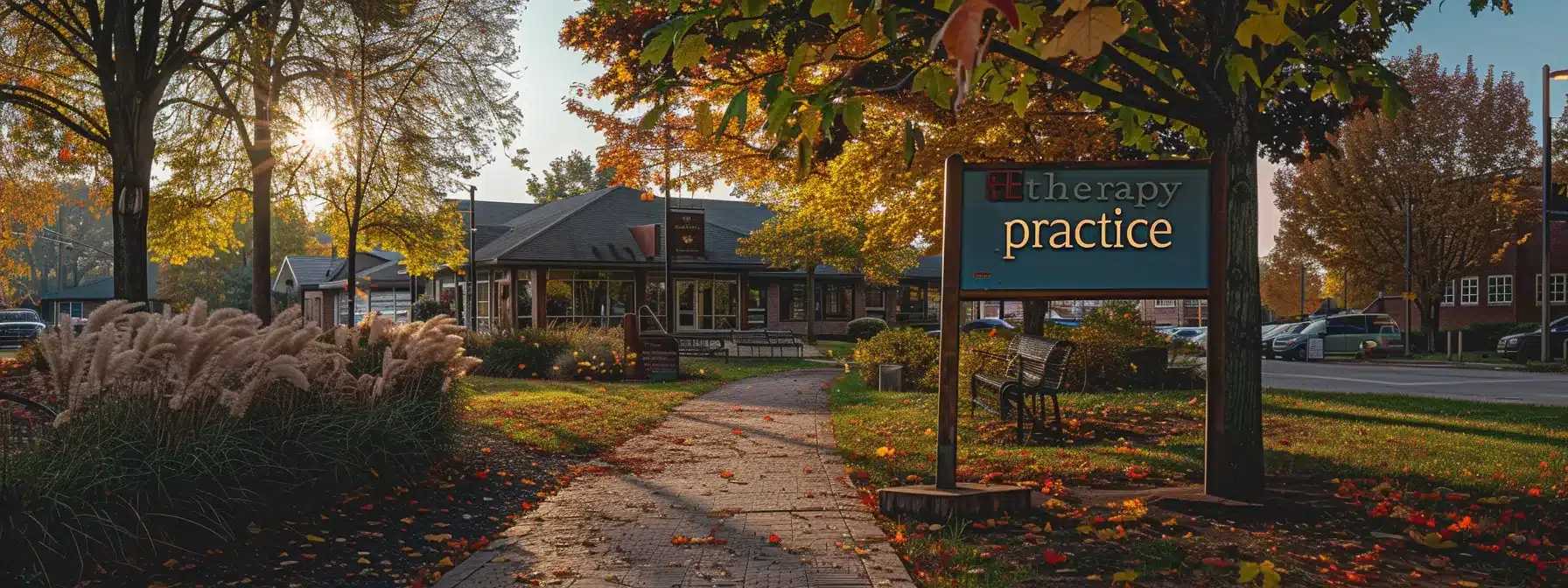Boost Your Practice: Essential Local SEO Tips for Therapists
Are you struggling to attract local clients to your therapy practice? You’re not alone. Many therapists find it challenging to improve their visibility in the search results, especially with the constantly changing algorithms. In this post, I’ll share essential local SEO tips tailored specifically for therapists. We’ll cover optimizing your Google My Business profile, building an effective keyword strategy, and generating positive local reviews. By implementing these strategies, you’ll enhance your mental health marketing efforts and connect with the clients who need your services most. Let’s tackle these common pain points together.
Understanding the Importance of Local SEO for Therapists

Local SEO is essential for therapists looking to attract nearby clients effectively. Understanding the landscape of Local versus General SEO can significantly influence your practice’s visibility. We will also address common challenges in optimizing your web design and offer best practices backed by statistics to help you connect with potential clients. Let’s dive into these vital aspects to boost your practice.
How Local SEO Attracts Nearby Clients
Local SEO is a game changer for therapists aiming to attract clients in their vicinity. When potential clients search for counseling services on a mobile device, they often rely on local results presented by search engines. By optimizing your online presence with accurate citations and ensuring your website features a responsive web design, you enhance your visibility and make it easier for local clients to find and connect with your practice.
| Strategy | Description |
|---|---|
| Optimize Local Listings | Ensure your practice is listed on local directories with consistent information. |
| Mobile Optimization | Design a responsive website that is easy to navigate on mobile devices. |
| Utilize Citations | List your business on various platforms to improve local search visibility. |
| Create Local Content | Generate blog posts or articles that target local issues related to therapy. |
The Difference Between Local and General SEO
Understanding the difference between local and general SEO is crucial for therapists looking to enhance their online presence. Local SEO focuses specifically on optimizing your practice to appear in searches related to your geographical area, making it easier for potential patients seeking services like couples therapy to find you. In contrast, general SEO targets broader keywords and traffic, which may not always connect you with those nearby who genuinely need your expertise. By prioritizing local SEO, you can increase your practice’s visibility among your community, ultimately improving your chances of attracting new clients.
Overcoming Common Local SEO Challenges
Overcoming common local SEO challenges is vital for therapists striving to improve their online presence. One significant hurdle is managing your web page‘s reputation; it’s essential to actively solicit positive feedback from clients and respond to reviews. By showcasing testimonials on your site, you enhance your credibility, making it easier for potential clients to trust your services. This proactive approach not only boosts your visibility in local search results but also helps you connect with clients looking for the support you provide.
Optimizing Your Google My Business Profile

Setting up a complete and accurate Google My Business profile is a fundamental step in local SEO for therapists. We will discuss the importance of selecting appropriate categories and services to enhance your visibility. Additionally, I will cover how adding photos and updating your business hours can improve client navigation and engagement. Lastly, we’ll explore strategies for managing and responding to client reviews, reinforcing your expertise within your online community.
Setting Up a Complete and Accurate Profile
Setting up a complete and accurate Google My Business profile is crucial for improving your therapist SEO and increasing your visibility in Google search results. I recommend ensuring your profile includes essential information, such as your location, services, and operating hours, as this directly impacts how potential clients find you. Incorporating relevant keywords related to mental health into your profile can further enhance its effectiveness, making it easier for local clients to discover and connect with your practice.
Selecting Appropriate Categories and Services
Selecting appropriate categories and services on your Google My Business profile is crucial for connecting with your target audience effectively. By accurately defining your services, such as individual therapy, couples counseling, or group sessions, you ensure potential clients find you when they search for relevant support. This attention to detail can significantly reduce your bounce rate as visitors who arrive at your site find precisely what they need, increasing the likelihood of engagement and subsequent bookings.
| Category | Description |
|---|---|
| Individual Therapy | Provides one-on-one sessions to address personal mental health concerns. |
| Couples Counseling | Focuses on relationship dynamics and improving communication between partners. |
| Group Therapy | Offers sessions with multiple participants to foster shared experiences. |
| Family Therapy | Involves all family members to address collective issues and dynamics. |
Adding Photos and Update Business Hours
As a mental health counselor, I find that adding high-quality photos to my Google My Business profile helps create a welcoming atmosphere for potential clients. Including images of my clinic environment and team can ease the nerves of those seeking support for issues like grief, making them feel more comfortable before they even arrive. Additionally, keeping my business hours updated is vital; it ensures clients can quickly find when I’m available, streamlining their experience and enhancing my local SEO performance, as confirmed by tools like Semrush that emphasize the importance of accurate information in driving client engagement.
Managing and Responding to Client Reviews
Managing and responding to client reviews is crucial for building trust and credibility in your therapy practice. When clients share their experiences, I make it a priority to reply promptly and thoughtfully, whether the feedback is positive or addresses areas of improvement. This not only demonstrates my commitment to their healing process, particularly when dealing with pain or coping strategies, but it also enhances my content marketing efforts. By showcasing my responsiveness, I attract potential clients who are searching for support in marriage or other personal challenges, ultimately strengthening my marketing plan and increasing engagement within my community.
Building a Local Keyword Strategy for Your Therapy Practice

Researching relevant local keywords is vital in attracting clients to your practice. Incorporating long-tail keywords for specific services helps connect with those seeking targeted support. By strategically placing these keywords in your content, including your Google Business listing, I can enhance my visibility. Monitoring and adjusting keyword performance ensures I remain a thought leader in the therapy field and effectively engage clients in a mobile app commerce environment.
Researching Relevant Local Keywords
When researching relevant local keywords as a mental health professional, I focus on terms that potential clients are likely to use when searching for services like mine. Utilizing tools such as Google Keyword Planner allows me to identify phrases that include location-specific terms alongside my practice’s services, enhancing my Google Business Profile visibility. By effectively integrating these keywords into my website and other online resources, I can improve my SEO for therapists and increase my presence on search engine results pages, ultimately connecting with more clients who need my support.
Incorporating Long-Tail Keywords for Specific Services
Incorporating long-tail keywords into my local SEO strategy has proven essential for attracting the right clients to my practice. For instance, using phrases like “cognitive behavioral therapy in [your location]” or “counseling for anxiety near me” connects directly with individuals searching for specialized services. By conducting thorough keyword research and integrating these terms into my website, I not only improve my visibility on platforms such as Psychology Today but also increase the chances of receiving positive testimonials, as clients find me more easily and trust my offerings.
| Long-Tail Keyword | Description |
|---|---|
| Cognitive Behavioral Therapy in [Location] | Targets clients seeking specialized therapy solutions in their area. |
| Counseling for Anxiety Near Me | Connects with individuals actively searching for local mental health support. |
| Therapists Specializing in Grief Counseling | Focuses on a specific emotional need, which can enhance client engagement. |
| Affordable Couples Therapy in [City] | Addresses budget-conscious clients looking for relationship support. |
Strategically Placing Keywords in Your Content
Strategically placing keywords in my content has been a vital part of my marketing strategy to enhance my therapy practice’s visibility. While onboarding new clients through my website, I ensure that relevant keywords, such as “therapy,” are seamlessly integrated into my service descriptions and blog posts. By doing so, I cater to search engine algorithms, much like how one would optimize a listing on platforms like the Yellow Pages, ensuring that potential clients can easily find the support they need in their local community.
Monitoring and Adjusting Keyword Performance
Monitoring and adjusting keyword performance is crucial in my local SEO marketing strategy. By regularly analyzing which keywords drive traffic to my landing page, I can identify opportunities to refine my approach without falling into keyword stuffing. This ongoing assessment ensures that I maintain visibility in local search results, connecting me with more clients in my community who are seeking the support I provide.
| Action | Description |
|---|---|
| Analyze Traffic Sources | Identify which keywords are driving the most traffic to my site. |
| Adjust Keyword Focus | Refine my keyword strategy based on performance insights. |
| A/B Testing | Implement changes and test their impact on landing page engagement. |
| Monitor Local Competition | Stay aware of local competitors’ keyword strategies to improve my own. |
Enhancing Your Website for Local Search

To enhance your website for local search, implementing local schema markup is essential. This helps search engines understand your services, such as dialectical behavior therapy. Creating location-specific landing pages and ensuring a mobile-friendly design with fast load times will improve user experience and SEO performance. Additionally, displaying clear contact information and maps helps clients connect with your practice quickly.
By focusing on these key areas, I can boost my practice’s visibility in search engines. Understanding analytics and utilizing social media effectively will further strengthen our presence online, showcasing my knowledge and commitment to serving clients in my community.
Implementing Local Schema Markup
Implementing local schema markup on my website has significantly improved its usability and visibility in search results, particularly for terms related to therapy and counseling. This structured data not only helps search engines understand my specializations—like stress management and confidentiality in sessions—but also enhances the way my practice appears in search results, making it more attractive to potential clients. By signaling to search engines that I offer services relevant to local searches, I ensure that my practice stands out, thereby driving more targeted traffic that’s more likely to convert into clients.
Creating Location-Specific Landing Pages
Creating location-specific landing pages is a critical aspect of my content strategy, as it allows me to target potential clients in various areas effectively. By focusing on unique localities, I ensure that my content creation reflects the needs of distinct communities, making my practice more relevant to searchers. Additionally, integrating a clear call-to-action, such as inviting visitors to share their email address for newsletters on mental health topics, enhances my social media marketing efforts and nurtures relationships with potential clients looking for support.
Ensuring Mobile-Friendly Design and Fast Load Times
Ensuring that my website has a mobile-friendly design and fast load times is essential for enhancing user experience and maintaining relevance in local search results. As a therapist, I understand that potential clients often look for immediate accessibility, so working with a skilled web developer to optimize my site ensures it loads quickly on smartphones and tablets. Additionally, showcasing social proof through client testimonials on a well-structured site aligns with my brand, making it easier for visitors to trust my practice and engage with my services.
Displaying Clear Contact Information and Maps
Displaying clear contact information and maps on my website is a foundational strategy for enhancing local search visibility. I ensure that my business address, phone number, and email are easily accessible, which helps potential customers find me without hassle. Additionally, integrating a map—such as one from my local chamber of commerce—directly on my site not only provides convenience but also reinforces the local aspect of my practice, making it easier for clients to visit my office. This approach directly addresses the needs of those seeking behavioral support in their community by clarifying how to connect with me.
Generating Local Reviews and Testimonials

Encouraging clients to share their experiences is a vital first step in generating local reviews and testimonials. I emphasize responding professionally to all feedback, as this not only reflects my commitment to ethics but also demonstrates my care as a health professional. Showcasing testimonials on my website and utilizing third-party review platforms can further engage potential clients, particularly those searching through voice search for support related to issues like eating disorders while aligning with user intent.
Encouraging Clients to Share Their Experiences
Encouraging clients to share their experiences can significantly enhance the credibility of my therapy practice. I often ask clients for their feedback after sessions, emphasizing how positive testimonials can help others seeking family therapy or psychotherapy find the support they need. By providing a simple description of how they felt during their journey, I create a valuable backlink to my services that can improve my local SEO and connect me to those looking for help.
| Client Engagement Strategy | Description |
|---|---|
| Feedback Solicitation | Request feedback from clients after sessions to gather testimonials. |
| Highlight Specific Outcomes | Encourage clients to share specific results or feelings post-therapy. |
| Use of Online Platforms | Encourage clients to post reviews on Google or relevant therapy directories. |
| Showcasing Testimonials | Feature client testimonials on my website to attract new clients. |
Responding Professionally to All Feedback
Responding professionally to all feedback is vital in building trust and credibility for my therapy practice. When I receive reviews, whether positive or negative, I take the time to acknowledge them thoughtfully. This approach not only showcases my commitment to client care but also aligns with the strategies outlined in the Core Marketing System, enhancing my local SEO by demonstrating an active engagement with potential clients who might be searching for supportive services.
Showcasing Testimonials on Your Website
Showcasing testimonials on my website has been a vital part of establishing trust and credibility with potential clients. By prominently featuring positive feedback from clients who have benefited from my therapy services, I create a sense of assurance for those seeking support. This practice not only enhances my local SEO but also helps visitors connect with my offerings, as they can see real-life success stories that resonate with their own experiences and needs.
Utilizing Third-Party Review Platforms
Utilizing third-party review platforms is a vital strategy that I encourage other therapists to incorporate into their local SEO efforts. These platforms, such as Psychology Today and Yelp, provide an additional layer of credibility and visibility for my practice. When potential clients read genuine reviews on these sites, they gain trust in my services, leading to higher engagement and increases in new client inquiries. Actively managing my presence on these platforms not only enhances my reputation but also improves my search engine ranking, making it easier for individuals seeking therapeutic support to find me.
Engaging With Your Community Through Local Content Marketing

Engaging with my community through local content marketing is vital for my therapy practice’s growth. Writing blog posts about community topics resonates with local interests, while collaborating with local organizations enhances credibility. Connecting with locals on social media fosters relationships, and participating in community events and workshops showcases my commitment to supporting mental health. These strategies will attract potential clients and strengthen my local presence.
Writing Blog Posts About Community Topics
Writing blog posts about community topics has proven to be an effective strategy for enhancing my visibility as a therapist. By addressing local issues, such as mental health awareness events or resources available in our area, I connect with potential clients who may be searching for support in those specific contexts. This not only positions me as a knowledgeable resource but also drives local search traffic to my website, allowing me to reach individuals who need my services while fostering a sense of community involvement.
Collaborating With Local Organizations
Collaborating with local organizations can substantially enhance my therapy practice’s visibility and credibility within the community. By partnering with schools, wellness centers, or nonprofit groups, I can offer workshops or informational sessions that address mental health topics relevant to their audiences. This not only positions me as a trusted resource but also helps connect with potential clients who may be seeking support in a familiar context.
- Identify local organizations that align with mental health advocacy.
- Offer to host workshops or seminars on relevant topics.
- Develop informational materials that organizations can distribute to their communities.
- Utilize social media to promote joint events and share resources.
Connecting With Locals on Social Media
Connecting with locals on social media is a powerful way to engage with my community and enhance my therapy practice’s visibility. By sharing relevant content, such as mental health tips or local events, I build relationships with potential clients and foster a supportive online environment. Engaging directly through comments and messages also allows me to address community needs and demonstrate my commitment to providing accessible mental health resources in the area:
- Post regular updates about local mental health events and workshops.
- Share informative content that addresses common concerns within the community.
- Encourage discussions by asking questions related to mental health and wellness.
- Highlight collaborations with local organizations to showcase community involvement.
Participating in Community Events and Workshops
Participating in community events and workshops is an effective way for me to connect with potential clients while showcasing my commitment to mental health awareness. These events allow me to share valuable insights and resources about therapy, address common concerns, and foster meaningful relationships within my local community. By engaging in such activities, I not only enhance my visibility but also position myself as a trusted resource for individuals seeking support, ultimately boosting my practice’s reach and credibility:
- Identify local mental health events and opportunities for engagement.
- Offer workshops or seminars that provide informative content.
- Collaborate with other professionals and organizations to broaden outreach.
- Utilize social media to promote and highlight participation in local events.
Conclusion
In summary, mastering local SEO is vital for therapists aiming to attract nearby clients and enhance their practice’s visibility. By optimizing Google My Business profiles, selecting appropriate keywords, and engaging with the community through local content, therapists can create meaningful connections with potential clients. Responding to reviews and maintaining a user-friendly website further reinforces credibility and fosters trust. Implementing these essential strategies will significantly boost your practice and enable you to effectively serve those seeking your support in the community.
